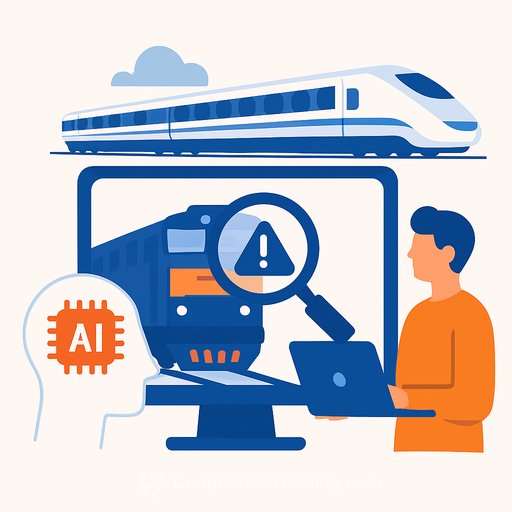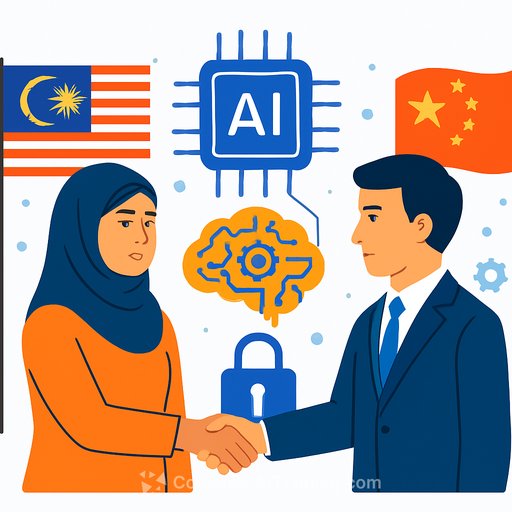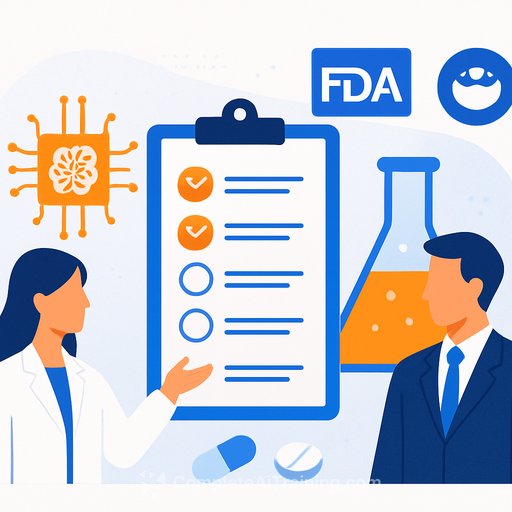AI's Pivotal Role in Software Development: Nigeria's Struggle for Relevance
AI is rewriting how software gets built. New winners are forming. Slow movers are fading. Most countries are threading AI through government, finance, health, and education. In Nigeria, the conversation is scattered. No clear plan, lots of turf wars, and a quiet software sector at the exact moment it should be loud.
Forecasts pegged Nigeria's software and digital services market to top US$2.4B by 2024. Fintech, govtech, and edtech have been the growth engines. Yet global relevance and policy influence remain thin. Despite the talent pool and scale, there's no national AI strategy and no stable institutions to turn individual brilliance into national advantage.
Institutions: Silent when they should be loud
The Institute of Software Practitioners of Nigeria (ISPON) has gone quiet on hard topics-AI ethics, software sovereignty, and protection of local IP. The Nigerian Computer Society faces internal rifts and unreliable government engagement. That vacuum means Nigeria lacks a unified voice to influence policy or protect the interests of local builders.
Infrastructure remains the first bottleneck. Leo Stan Ekeh put it plainly: "We cannot compete in AI with erratic power and unreliable broadband. Intelligent solutions cannot emerge from inefficiency." He's right. No power, no compute. No compute, no models.
Chris Uwaje has been clear on the stakes: "If Nigeria does not safeguard its software sovereignty, it risks being relegated to a digital dependency." He points to homegrown tools that worked-like Remita-as proof that indigenous software can run critical government rails when given the mandate.
Global context: The bar moved-quietly, then all at once
Machine learning engineers, data scientists, and AI architects are the new core of high-leverage teams. In 2024, AI startup funding crossed US$70B, while Africa took a sliver of that. Inside Nigeria, only a handful of companies-mostly in fintech and health-are building AI-first products. Universities lag with outdated curricula and thin compute.
Meanwhile, big platforms keep folding AI into every layer of their stack. That locks in their lead and raises the standard developers must meet. The result: Nigerian teams struggle for funding, compute, and distribution while competing with products backed by global infrastructure.
A practical national playbook (that actually moves the needle)
- National AI Policy: Clear stance on ethics, safety, sovereignty, and public interest. Focus on practical guardrails: risk tiers, model evaluation, auditability, and data rights.
- Procurement that buys outcomes: Publish high-impact problem statements (payments leakage, customs fraud, crop yield, hospital triage). Fund pilots. Pay for verified results.
- Infrastructure first: Reliable power, broadband, and access to GPUs. Negotiate cloud credits. Build shared compute hubs in Lagos, Abuja, and Port Harcourt with fair access.
- Data commons: Open, anonymized government datasets (payments, health, agriculture, education). Clear licenses. Strong privacy enforcement.
- AI Fund: Capital for startups building local-language apps, agricultural analytics, and public-sector automation. Tie funding to adoption milestones, not vanity metrics.
- Institutions that work: Re-energize ISPON and NCS with transparent governance, joint industry councils, and a single policy desk for government engagement.
- Skills pipeline: Update curricula, fund computing labs, and launch paid apprenticeships. Prioritize MLOps, data engineering, security, and evaluation-not just model training.
- Standards and safety: Model cards, dataset documentation, incident reporting, and red-teaming as standard practice for any system deployed in critical sectors.
What engineering teams can do now
- Pick 3 high-value use cases where you can win: fraud detection, customer support automation with RAG, claims triage, KYC risk scoring, inventory forecasting.
- Go local with language: Yoruba, Hausa, Igbo variants. Fine-tune or prompt-tune small models. Use retrieval to ground answers in local knowledge.
- Own your data pipeline: Clean, labeled data beats bigger models. Build feedback loops from production. Track drift and false positives rigorously.
- Productionize early: CI/CD for models, feature stores, canary releases, human-in-the-loop review, rollback plans. Treat models like code.
- Security and compliance: Encrypt data at rest/in transit, strict IAM, PII minimization, dataset lineage, and audit logs. No sensitive data in unchecked third-party tools.
- Cost discipline: Prefer smaller models with good retrieval. Batch inference. Cache. Quantize. Watch egress fees.
- Partnerships: Co-build with banks, telcos, and MDAs. Secure real datasets under NDAs. Trade pilots for references.
- Measure what matters: Latency, hallucinations, precision/recall, and user satisfaction. Report weekly. Kill what doesn't move the metric.
ISPON and NCS: a 90-day reset
- Unify the house: Emergency congress, caretaker committee, and an independent secretariat to stop leadership churn.
- Publish a single policy memo to the Presidency and National Assembly with actionable asks: procurement reform, AI fund, data-open directives, and compute incentives.
- Stand up an industry coalition of startups, banks, telcos, and universities. Monthly working groups. Quarterly public scorecards.
- Open-source the process: Public repo for policy drafts, templates for RFPs, evaluation checklists, and red-team guides.
- Launch challenge grants: 10 government problem statements, N50m per winner, 6-month pilot-to-production timeline.
Skills: the fastest compounding edge
Teams that learn fastest win. If you need a clear path to upskill in LLMOps, data engineering, and AI product management, explore curated options by job role at Complete AI Training. Build capability while the policy gears turn.
The choice in front of Nigeria
Nigeria has the people, the grit, and a growing digital backbone. What's missing is coordination and credible commitment. As Chris Uwaje says, "Software embodies the DNA of national development." If that's true, AI is the next evolution of that DNA.
The moment demands a clear answer: lead with a plan, follow with dependence, or fade into silence.
Further reading
- Stanford AI Index Report for global funding and deployment trends.
Your membership also unlocks:






